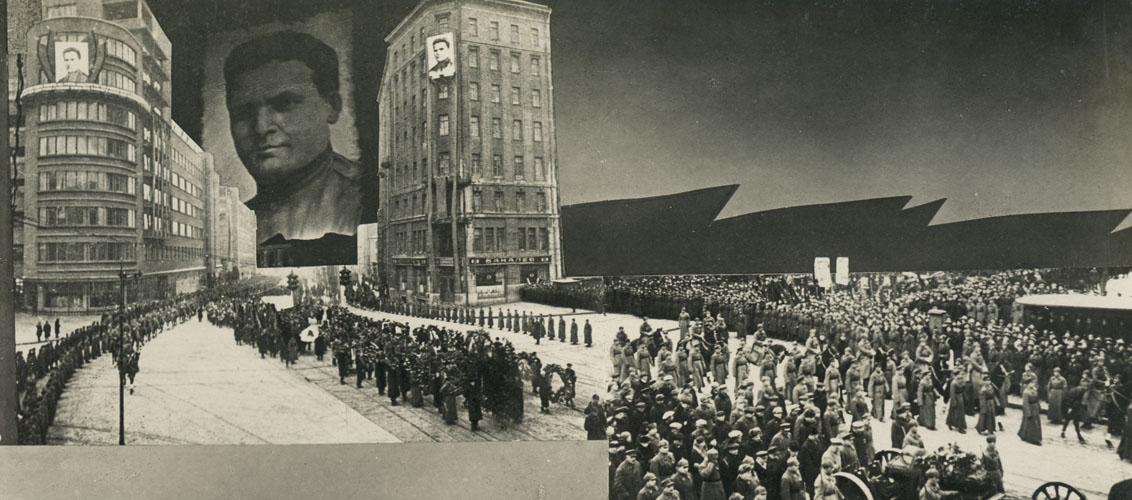The death of Kirov. Facts and version >>
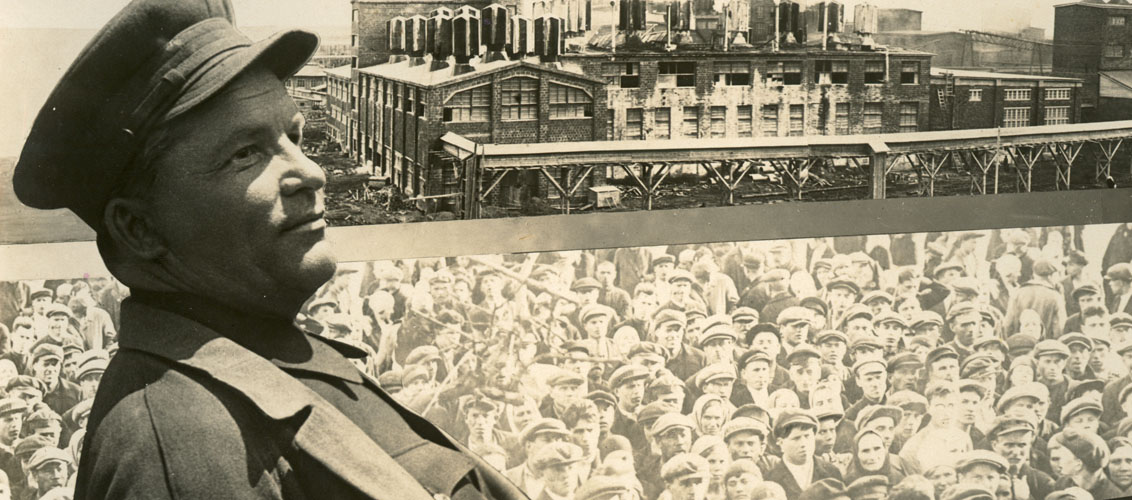
Sergei Kirov (1886–1934) - One of the most famous state and party leaders of the Soviet era of 1920–1930 and close companion of Stalin. Kirov’s personality, because of his charisma and circumstances of his biography, became one of the symbols of Leningrad and the time.
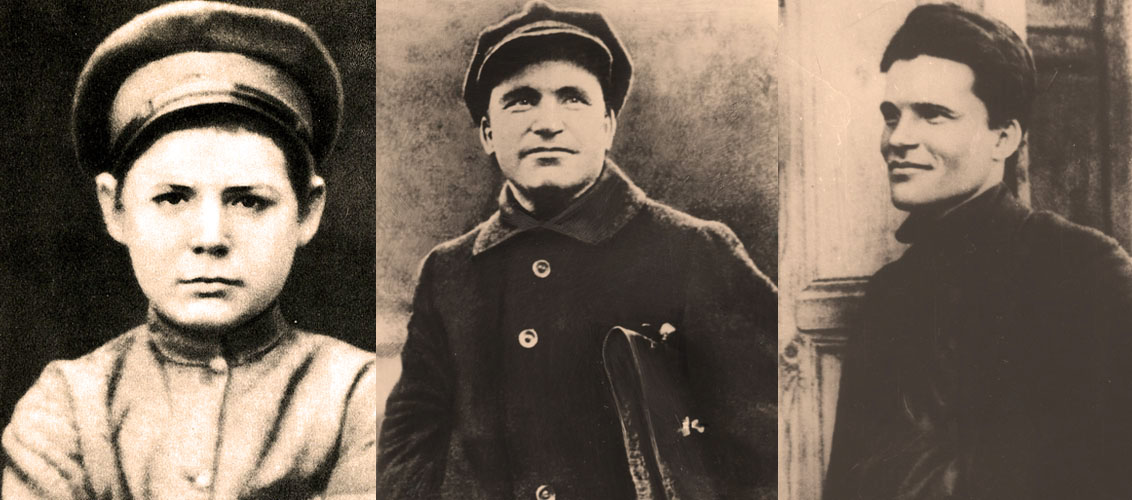
Kirov (his real name was Kostrikov) was born 15 (27) in March 1886 in the city of Urzhum, Vyatka province (now the Kirov region) in the middle-class family. Sergei was only four years old when his father left the family. Soon the boy's mother Catherine Kuzminichna died. Eight-years-old Sergei together with his two sisters, Anna and Elizabeth, was in trusteeship of the grandmother Melania Avdeyevna. She sent grandson to the "House of Charity for young orphans». In 1901, Sergei graduaded from City College. He received financial support from Urzhum benefactors and became a student of the lower Mechanical and Technical School of Kazan. There he began to visit the clandestine student and workers' coteries.
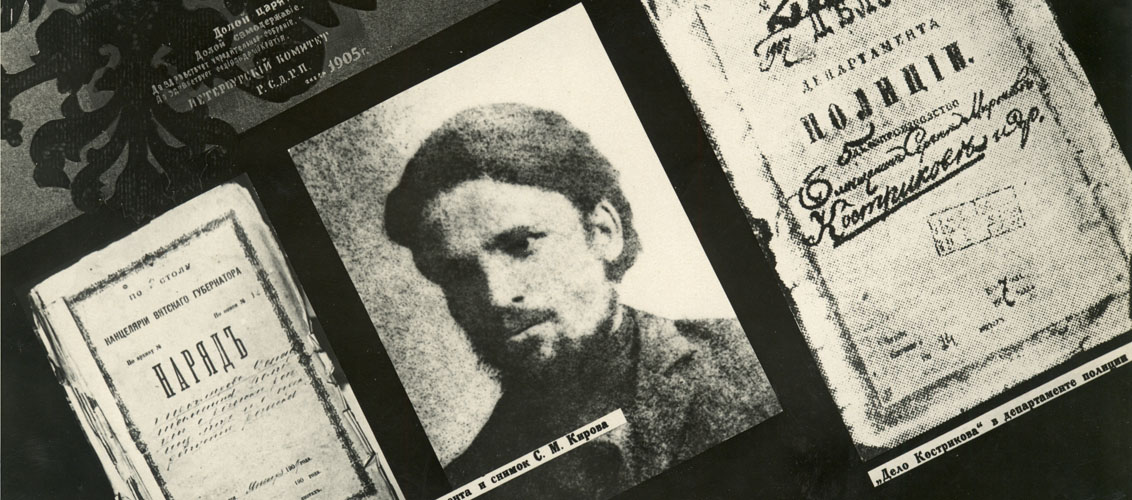
In 1904, after graduation, Sergei Kostrikov moved to Tomsk and won an admission for the preparatory courses of Tomsk Technological Institute. There he became a member of the Russian Social-Democratic Labour Party (RSDRP), and began to work in the clandestine printing-office. He was arrested in 1905, 1906, 1907 and 1911. From 1909 to 1917 Kostrikov lived in Vladikavkaz, where he worked as a journalist for the liberal-bourgeois newspaper "Terek". There, in editor office, he met his future wife, Maria Lvovna Marcus (1885 (1882) – 1945). At the same time he took his own pseudonym "Kirov".
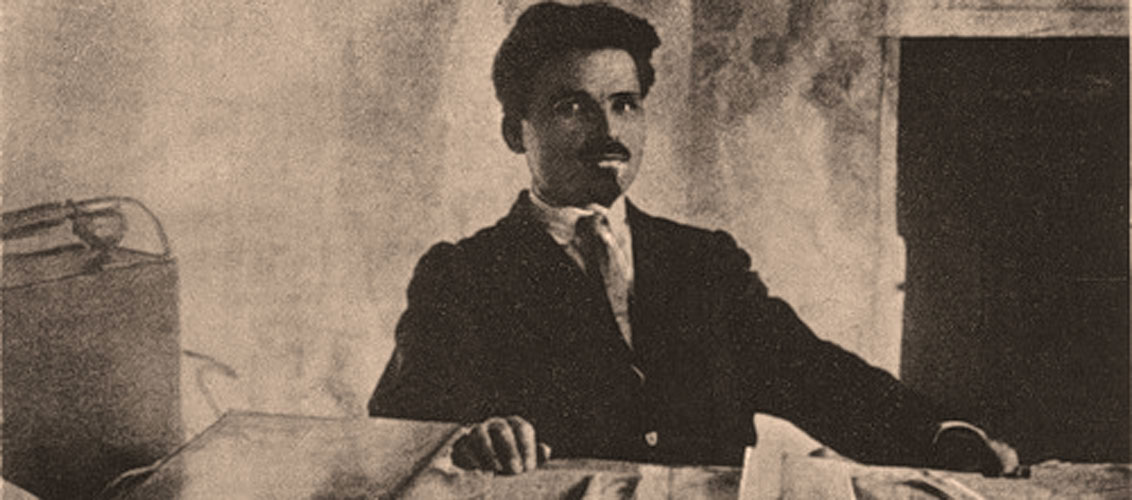
In the days of the February Revolution, Kirov among a small group of Bolsheviks joined the Vladikavkaz Soviet of Workers' Deputies. In October 1917 he was elected as a delegate at the II All Russian Congress in Petrograd. In the results of the Congress the Soviet Regime was declared in Russia. According to official Soviet biographies, political views Kirov before 1917 are clear - he was a Bolshevist - Leninist. Recent researches have challenged this assertion - Kirov could not find his political position. He sympathized with the Mensheviks, supported the Provisional Government, and only after the October 1917 came over to Bolsheviks side.
During the Civil War (1918-1922) Kirov participated in the Astrakhan organization of defense against the White Guard troops of Denikin and Kolchak. At that time he established illegal transportation of oil and gasoline in the Astrakhan from Baku, occupied by British troops. He carried out a number of diplomatic assignments and participated in the establishment of Soviet power in Azerbaijan and Georgia.
Kirov was one of the founders of the Transcaucasian Soviet Federative Republic (ZSFSR) in 1922. As a First Secretary of the Central Committee of the Communist Party of Bolsheviks (TSK KP (b)) of Azerbaijan Sergei Kirov been managing the recovery and reconstruction of the oil industry of the country.
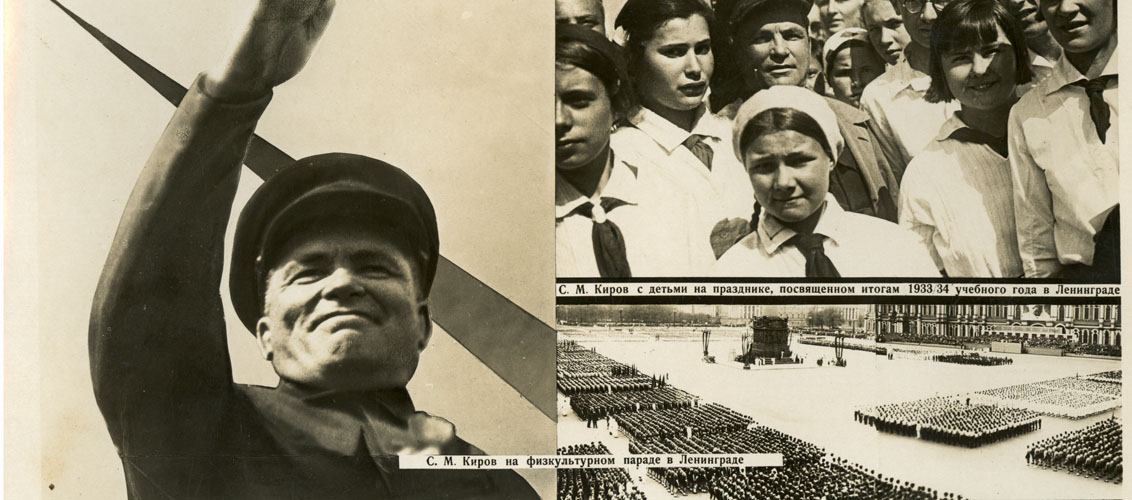
In January 1926 Kirov became the first secretary of the Northwest Bureau of Central Committee of the All-Union Communist Party of the Bolsheviks. In February 1926 he became the first secretary of the Leningrad Provincial Committee. Kirov created industrial and energy base and reconstructed economy of Leningrad and Leningrad Region.
December 1, 1934 Kirov was killed in the Smolny by Nikolayev. The cinerary urn was installed in the Kremlin wall in Moscow. Kirov’d death drew a public response. The 1 of December 1934 the Decree "On procedure for the commission of terrorist acts" was published. It was signed by the Secretary of the Central Executive Committee Presidium of the USSR Yenukidze. According to this document, Kirov was the victim of conspirators - the enemies of the Soviet Union. According to the official contemporary version of the murder of Kirov was done by the terrorist Nikolayev, by his personal motives and was not political but criminal.
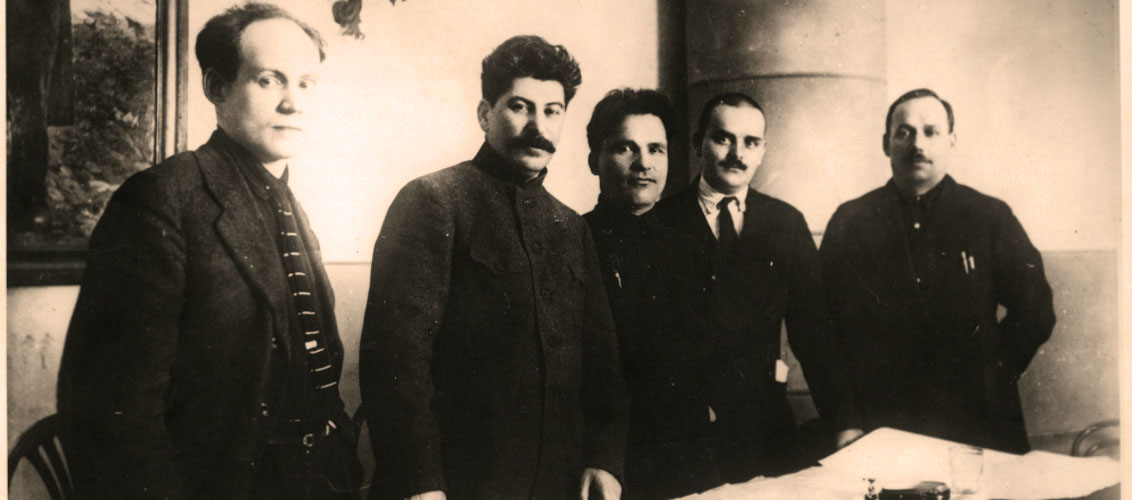
In Soviet times, the activity of Kirov in Leningrad and his personality were mythologized in the image of a martyr as he was a faithful follower of Lenin and Stalin. He died for the ideals of Bolshevism. In his honour cities, streets were named. Soviet artists, sculptors, writers, poets, filmmakers eternalized Kirov’s memory. Sergei Myronovych was a man of his day. He governed the Leningrad in a difficult, violent and controversial Stalin era.
